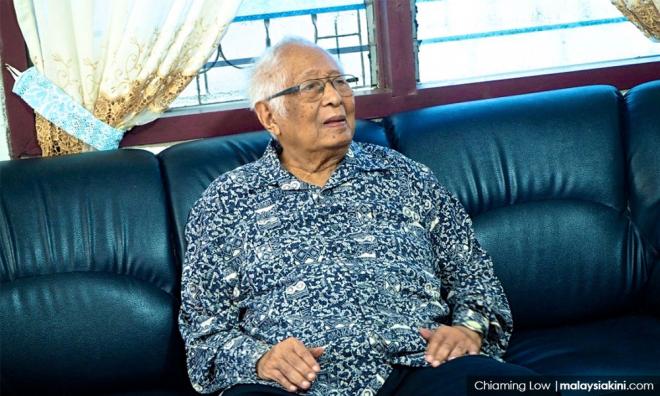
INTERVIEW | Thailand has shown a tremendous commitment to fulfil its promises to former members of the Communist Party of Malaya (CPM) since signing the Hat Yai Peace Accord 30 years ago.
Former CPM chairperson Abdullah CD (photo) told Malaysiakini Thailand was committed to implementing the agreement.
"If we were to scrutinise one by one (the agreement), there's only one issue that the Thai government has yet to do, which is to give the land grant," he said.
"But there is a reason for that and maybe it will be solved within one or two years.
"In the agreement, we were given a land and would later be given the grant, so this has yet to be done. However, the Thai leaders had taken note of our rights."
Abdullah said all former members, including those who have become farmers and rubber tappers, received aid from the Thai government.
"We enjoy the benefits as we have a guarantee letter from parties managing the southern region," he said, adding that he led the CPM's 10th regiment.
Abdullah, 96, was met at his house at Chulabhorn Patana 12 village in Narathiwat recently.
He was accompanied and assisted by his son-in-law Indrajaya Abdullah during the interview as he suffers from speech difficulties.
In Malaysia, CPM was in the spotlight after it was reported that the cremains of former CPM secretary-general Chin Peng was brought back.
This was followed by a gathering to commemorate the peace accord at a private college in Kajang. A similar but livelier event was also held in Hat Yai.
Malaysia and CPM signed the peace accord in 1989 which led to the disbanding of the party.
It had also allowed former members to receive aid to start a new life either in Malaysia or Thailand.
However, many of them including senior leaders such as Abdullah, Chin Peng, and Rashid Maidin had settled down in Thailand.
Equal treatment, free medical
Meanwhile, Indrajaya said after choosing to settle down in Thailand and become a Thai citizen, former CPM members were given equal treatment like the rest of the people.
"Before we obtained citizenship years ago, we received welfare like other Thai people, no less," he said.
"For instance, free treatment at the hospital. Although we were not yet Thai citizens, but there was no problem. And our freedom to move around was not restricted.
"Unlike Malaysia. I heard that our former members who returned to Malaysia, if they wanted to go out of the country, they must obtain a permission letter from the police. There's no such thing here.
"If compared with the Malaysian government, Thailand is more committed," he said.
Indrajaya is also Hat Yai Peace Coalition chairperson.
Members of the associations are those who were involved in making the 1989 peace accord a reality.
Still using red identity card
Indrajaya also expressed sympathy to his friends in Malaysia who have yet to be given a citizenship after choosing to return to the country.
"To my knowledge, there are about 10 of us who have yet to be given citizenship in Malaysia. They are still using red identification cards although it's clear that they are Malaysians.
"The political and social landscapes in Malaysia and Thailand were different at the time," he said. - Mkini
No comments:
Post a Comment
Note: Only a member of this blog may post a comment.